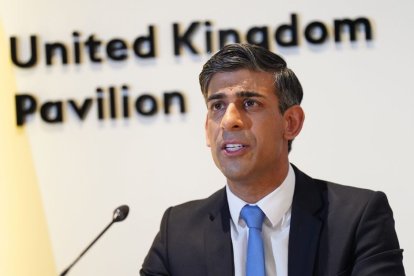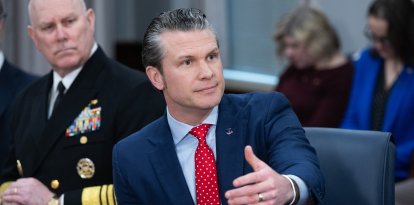United Kingdom: Controversy between Sunak and Cameron over appointment of ambassador to the U.S.
The Foreign Secretary recommended waiting until after the elections to announce the new representative. However, the conservative government is expected to make it public this Tuesday.

Primer ministro Rishi Sunak
Tension is brewing in the United Kingdom following controversy over Prime Minister Rishi Sunak's plan to publicly announce the new ambassador to the United States. According to The Telegraph, National Security Advisor Tim Barrow is expected to be appointed as the new representative in Washington, D.C.
"Downing Street is set to announce as soon as Tuesday that Sir Tim, the former ambassador to Ukraine, Russia and the EU, will be sent to the British embassy in Washington at the end of this year. The position, one of the Government’s most prestigious placements, carries even greater weight in advance of the US presidential election in November, where Donald Trump could win a second term in the White House," the Telegraph reported.
Similarly, Foreign Secretary David Cameron proposed delaying the appointment until after the general election, but the prime minister did not take his advice.
"Lord Cameron, the Foreign Secretary, is understood to have suggested that the government wait until after the next general election before announcing her replacement. However, his advice was overruled by Mr Sunak, who is said to have wanted to reward Sir Tim for his work in Downing Street," reported The Telegraph.
The revelation of the potential new ambassador also triggered a response from the Labour Party. A source told the Financial Times that the Labour Party expects to revisit the appointment if they win the next general election. Their concern is not solely due to dissatisfaction with Sir Tim Barrow as the incumbent, but rather because they believe they should have been consulted in the appointment process.
"By needlessly rushing through vital diplomatic appointments so close to both the UK and US elections, the Tories are putting their party interests before the national interest once again," the official told the Financial Times.
RECOMMENDATION





















